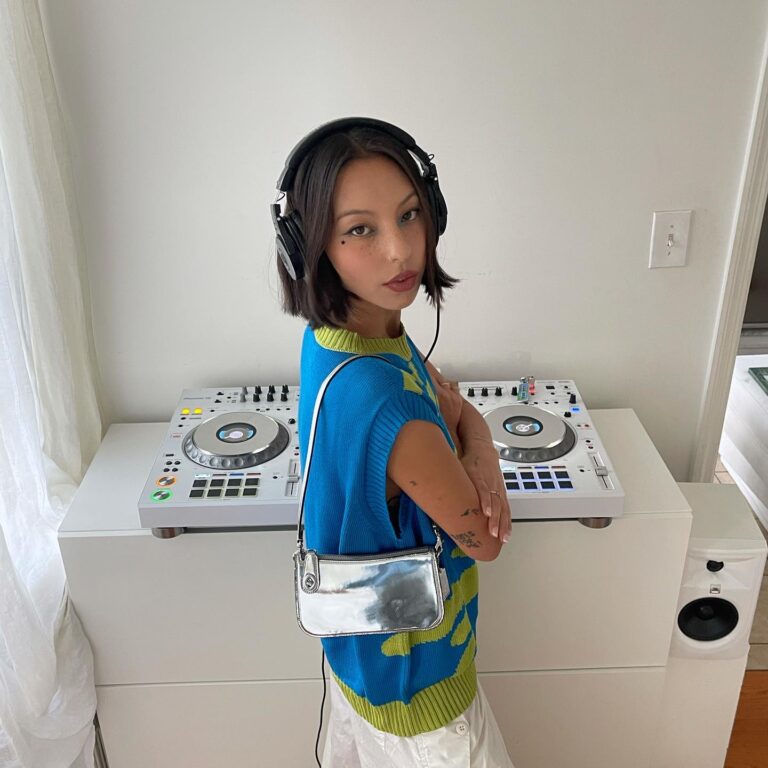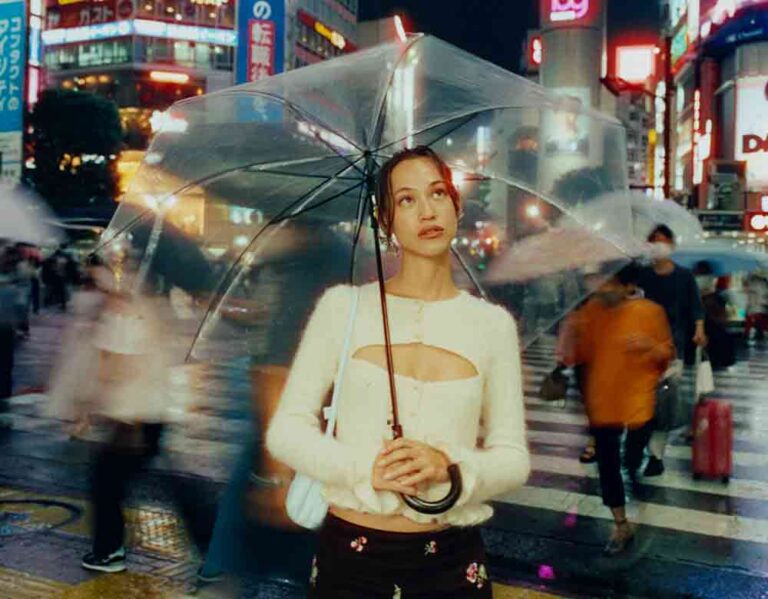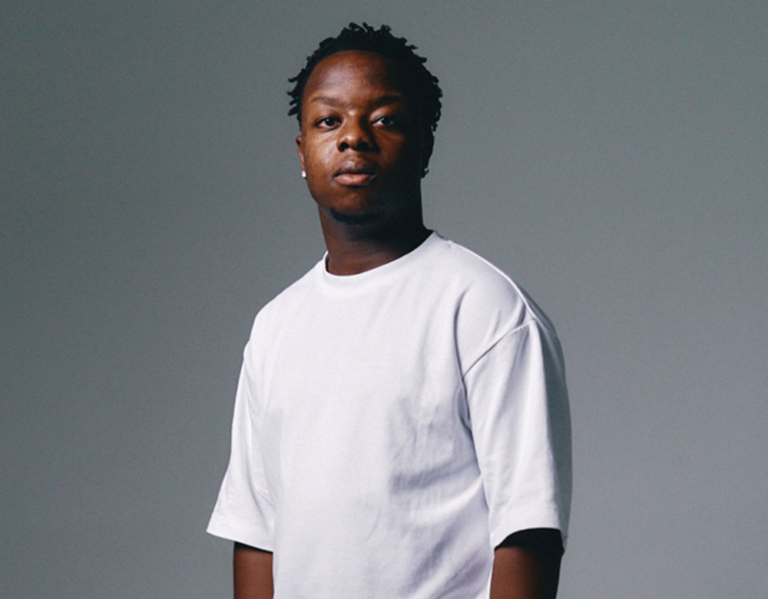Jordan Anderson, Editor-at-Large & Founder MQBMBQ, Milan

Hi Jordan, could you introduce yourself?
I’m Jordan Anderson. I’m a Jamaican writer based in Milan. I’m the creative director and founder of a platform called Micro Blackness, editor-at-large at NSS Magazine and the founder MQBMBQ [My Queer Blackness, My Black Queerness]. My background and the career I’ve built focuses on black identity in the arts.
What is the day-to-day of your job like?
In Milan every day is different. Today I’m a bit flustered because usually I’m in the office all day but I [also] had to go see my accountant, pick up some things from the showroom, and now I’m back in the office! On a chill day, like if it’s not fashion week or design week, then I’m just working on my projects in the office.
How would you describe your career trajectory so far?
It’s been interesting because I’m one of those people who does ten million things and people don’t know what box to put me in. I refuse to be in one box, so I end up in 20 different boxes. Like, there’s 20 different Jordans. My career has had a complicated trajectory and it’s not been linear in any way. It’s made me feel grown in so many ways but I’ve had to grow in so many other ways I didn’t think I would. So, while the trajectory has not been strictly linear, I’ve enjoyed it because, you know, the thing is I get bored really fast. Unless I pushed myself to be developed in different areas and from different angles I wouldn’t have been satisfied. I don’t think of it as linear or one straight shot but as many different branches. It’s definitely been no less fruitful as a result
"I refuse to be in one box, so I end up in 20 different boxes."
Living and working in Milan, did you find the jump from Jamaica hard to make?
Not really… Well, yes, but not at the time. Looking back, it was quite hard in the sense that I don’t know if I would recommend it to anybody. Like, I’d cancel my plane ticket if I had to do it again. But if I had the chance to do it again, knowing what I know now, I would do so.
You know, I’ve been the editor-at-large for almost five years now. It’s hard to describe but it’s been fun. NSS are very easy to work with for the most part, and it’s been a smooth process as it’s more of what I already do. Whether it’s writing about fashion or doing projects about the industry, it’s something I’m already familiar with. Recently I’ve been writing less and doing more projects, which I’ve enjoyed. I haven’t been writing a lot to be honest, so I’ve been trying to balance that.
What do you think are some of the challenges involved in what you do?
For the Vogue Italia project that I did, I would say funding. Most of the major issues come down to finding funding. Whether it’s a small amount or a big amount, projects require funding. It’s so important to pay people for their work. We’re full of ideas but the funding is always something that we must remember, consider, and calculate into how we’re selling our ideas.
To some extent, a challenging aspect is keeping track of everything but also recognising which projects deserve 100% of me and which projects deserve that 10% more of me. That’s an ongoing challenge and something that I’ve been learning lately.
As the founder of MQBMBQ, you’ve endeavoured to facilitate artistic spaces for Black Queer creatives. How has the founding of this initiative impacted your life?
It has had a huge impact on my life. I do a lot of different projects or work on different things but most of the time it has something to do with that. It started out as something much smaller and then, when it grew a lot, I decided to slow things down a bit. I never like to do fast media or anything fast. My work takes time, and therefore, I slow things down. It’s taught me a lot – not just in terms of working with brands, but about the whole process.
It’s also taught me a lot about what brands are looking for, not just from a social impact point of view but also about what artists want to take from that aspect as well. I’m always learning a lot, so I’m super grateful for that.
Do you have a career highlight from your time with NSS and/or MQBMBQ?
It’s difficult to say, that’s like asking me to choose my favourite child! One of the projects that I do find extremely impactful is one I work on every year, namely an artist residency that MQBMBQ do in collaboration with a residence in Tuscany, called Villa Lena.
We do it every year with Black Queer artists through funding by a brand. It’s something that’s been very special and consistent for me and each year we’ve been doing it – this is our fourth year – it’s gotten better and better. So that’s definitely been a highlight for sure. Seeing the artists interact with each other and seeing how they react to spending four weeks together, and the passion that they have and what they get from it, has been very rewarding to me.




Is the residency something you’d look to do back in Jamaica in the future?
It’s something I’ve thought about doing, branching out, but I don’t know if I’ve thought about doing it in Jamaica. Because even though Jamaica is home, there’s a lot of complications to it. The residency is all about Black Queer people and for me their safety is so important. And also being from Jamaica, going back there isn’t my priority right now.
I was actually trying to put on an exhibition this January, but it didn’t work out. It’s a conversation that’s always ongoing, you know? ‘Cause I have my friends there and my older brother, who lives in Miami, goes home often. He studies Queerness in the Caribbean which includes a lot of research on current trends, so this is something that’s constantly in discussion. It just has to be the right opportunity. Who knows what the future holds? Honestly, I’ve thought about doing it in the Caribbean in general, or Brazil. I’m kind of obsessed with Brazil right now.
Is Brazil somewhere you could envision the residency happening in the near future?
I could see it happening. I just visited a friend’s residency there and Brazil is a gorgeous country. The creatives that live there are extremely special as well. I’m so interested in having a Pan African conversation with Black Queer creatives from there and the rest of the world. Not just Europe, but from elsewhere. That’s an ongoing thought in my head of something that I eventually have to do.
Do you have any upcoming projects that you’re working on that you’re excited about?
I’m working on the Villa Lena project again this year, and we’re about to launch the open call in, hopefully next week, for artists to apply by next week [applications close 1st of May, 11pm. The residency takes place 1st-26th of July]. That’s what we’re working on now. Then I’m working on a campaign for a brand that I’m really excited about for Pride but I can’t speak about yet. That is going to be something super special.
"Resilience is so important"
What are some of the qualities that you need to thrive in the industry?
Resilience is so important, especially in terms of pitching projects. You get a lot of no’s and sometimes the no’s aren’t pretty and nice and complimentary… Sometimes they’re a bit insulting.
Perseverance is also key, it’s important to keep trying, nonetheless. Focus is another one. With fashion and the art industry at large, it’s easy to get distracted or take your eye off the ball or get lost in money or whatever else. Without focus, or if only focusing on what the final impact is, it can fall away.
What advice would you give to our readers who are interested in getting into your writing professionally?
For me, it has always been about having something to say and having a unique perspective. If I’m picking up the pen or whatever it may be, it has to be for the purpose of educating or giving a new perspective that hasn’t already been in the world. If you’re going to say something that’s already been said, that doesn’t make sense to me. I’m not interested in that. I was never interested in what the latest trends were or what skirt is ‘in’, because I found that irrelevant. It just wasn’t my thing. And so, for me, one of the things that I always hold myself to whenever I pick up a pen is, “Okay, but is what you’re saying changing the world?” If it wasn’t then you don’t have something to say. It doesn’t make any sense. I’m not usually the person that writes like seven articles per week. Even if you do write seven articles a week, you have to find a way to make those articles unique in their own way. Whether it’s by research or by interviewing or just thinking on topics, I think that these are things that every writer should keep in mind before they start writing. This is also one of the reasons I don’t write so often anymore. I write whenever I have something to say, because otherwise I’m not that person who is going to change the world. I’m the one who does it because of their job. It’s a very learned approach, but it’s an important one.
"If you’re going to say something that’s already been said, that doesn’t make sense to me."
LATEST THAT MAY INTEREST YOU





